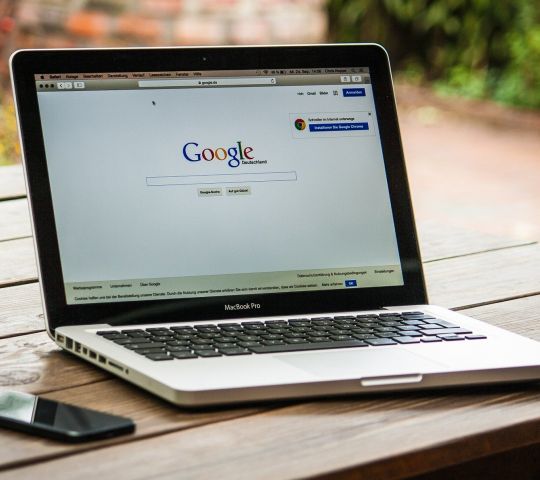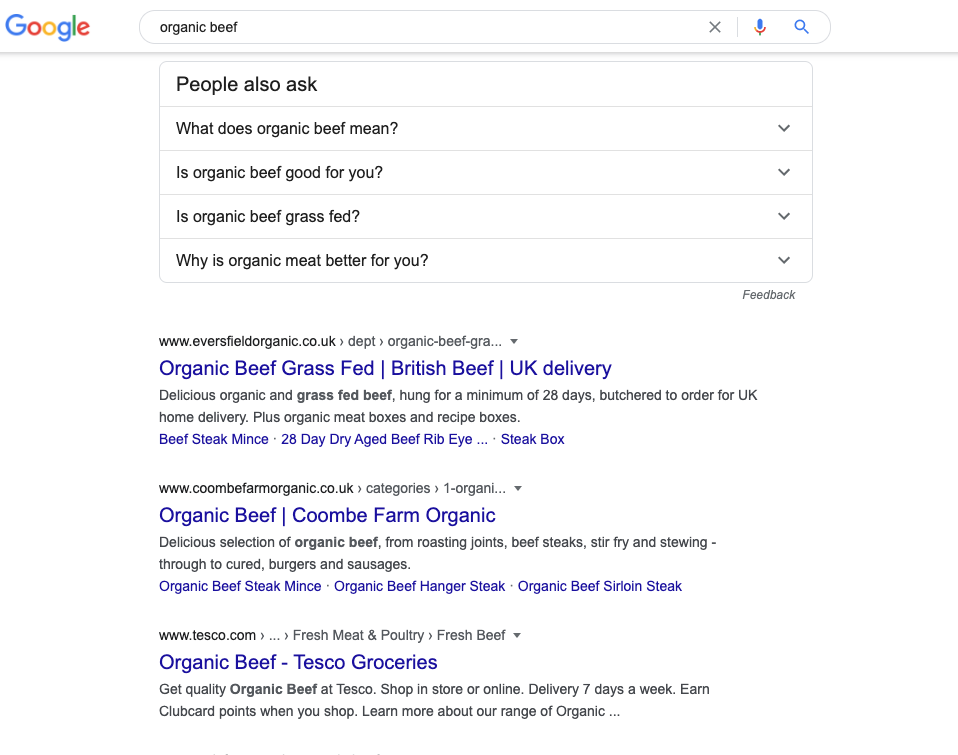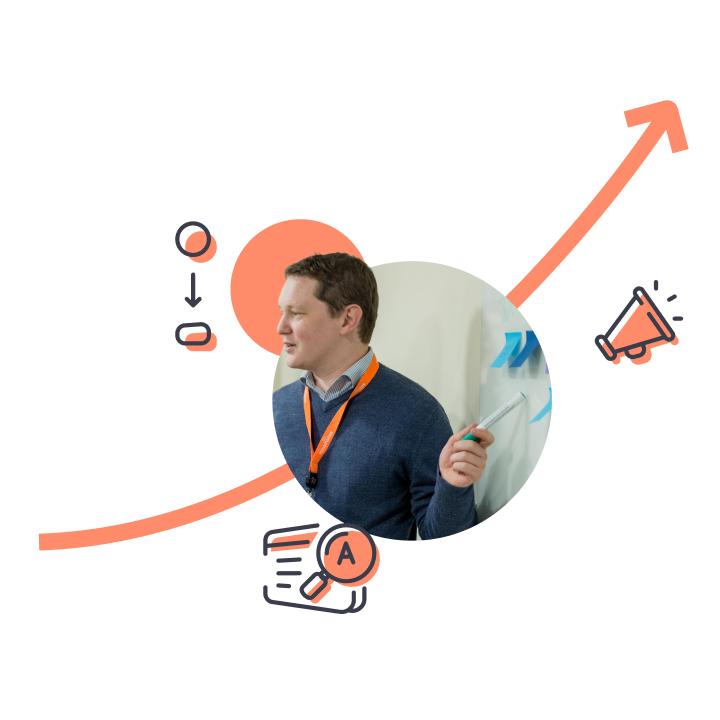We’re taking our meetings online.
We are using a range of online video options so please get in touch to have a chat.

Need expert advice?
Why not give us a call and see how we can help you with your project?
01460 984284We are using a range of online video options so please get in touch to have a chat.

Why not give us a call and see how we can help you with your project?
01460 984284Jargon-free, experience-backed insights to guide your digital decisions.

Greg Pankiewicz

SERP is an acronym for Search Engine Results Page(s). These are the pages of results you see when you perform a keyword search in Google or Bing.
It’s the list of results we’ve grown accustomed to seeing on a daily basis. You may have noticed that over the years its appearance has changed gradually as Google releases updates and revisions.
This process has led to a number of SERP key features now being shown. It also gives us an insight into Google’s strategy towards search overall.
It’s been established via many studies that page 1 of Google attracts far more traffic than page 2 etc. And listings that appear higher on page 1 attract far more traffic than listings at the bottom of page 1. Generally, the higher the better.
In simple terms, if you want to attract more traffic and conversions, gaining a higher position or ideally getting to the top of the SERPs should be of high priority to your business.
Given the importance of maintaining and improving your website’s SERP position, it makes sense to keep a close eye on it. You wouldn’t want your website position to bomb down the rankings without you even knowing about it, would you?
There’s lots of tools to help you do this, starting with Google’s own free Google Analytics. Many of them allow you to set alerts to notify you of any significant changes.
Or you could try a commercial tool, some of which often allow free access for a limited number of users/functions per day. Our favourites are UberSuggest or SEMRush.
When you type in a word or phrase and hit search, Google does its best to serve up relevant results personalised to you.
This is based on the keywords in your website along with a whole host of other factors that form part of Google’s legendary search algorithm.
You may have noticed that no two results are ever the same even when performed by the same user on the same device. And definitely not between different users. Why?
Because Google customises each result on a large number of factors including physical location, browser history and personal device preferences.
However even with this customised approach, the result page can generally be divided into two categories: Organic (or free) results and paid results. Here's a breakdown of the main elements:

To begin with, we have Organic results which are freebies available to everyone. They’re a great way for Google to acquire new website listings as most new sites are submitted to Google’s database and become just such a listing.
Billions of web pages exist, giving Google a huge database both to serve up as results and more importantly (for them!), to monetise via Paid Search. But because they're free, Google pushes them down below many other paid features. They don't want to give you too much for free now do they - otherwise you wouldn't want to pay!
But before we get on to Paid Ads, it’s worth mentioning SEO or search engine optimisation at this point. Many internet marketeers focus on improving the position of their free site listing via Search Engine Optimisation. This approach is sometimes seen as the opposite or alternative to paid ads although it's not really free as you usually pay an agency or individual to optimise your site's structured data. And most decent digital marketeers will recommend a blended combination to ensure you capture as many users as possible.
This list of frequently asked questions is set in expandable rows. Very popular and extremely handy for SEO.
You may also notice that when you click one to expand it to see the answer, more questions are populated below. This reflects modern usage in which longer, full sentence queries are increasingly being entered. For example “best electric small car” vs “what is the best electric small car in 2021?”
This highly placed 'box' often contains (or features) a brief excerpt (or snippet) from a website Google sees as providing the most relevant answers based on its meta data and meta description. Very valuable due to prominence and potential for users to click through to the full site providing said snippet.
Another form of Paid Ads that contain images and prices. They can appear right at the top or as a scrolling carousel depending on device. Aimed at companies offering e-commerce via their website, they usually direct the user to a specific product page.
These are ads that are paid for via the Pay-Per-Click (PPC) pricing model and usually dominate the top few results. Over the years the appearance of these have altered, with Google’s latest update to them attracting much criticism due to the fact that it’s become increasingly difficult to differentiate between free and paid ads.
These ads are Google’s main revenue stream and have been for years. Its makes sense then from Google’s point of view to make these dominant and therefore attractive to potential paying customers.
The only other free section on Google SERPs, these show a local map along with a handful of nearby businesses. With an increased focus by Google on local results, this is an important section as it gives key useful info such as contact details, opening hours and reviews. Every business should claim and manage this listing!
Originally just part of the free map listings and considered to be excellent ‘free’ local advertising, the Local Pack is slowly being monetised by Google. Originally 7 or more results long, it’s now often just 3, making it a premium listing with these coveted positions decided once again by Google’s algorithm. Additionally, Google now even allow you to purchase the top Local Pack slot. More cash in the bank for the big G...
A step up from the normal map listing, this panel often appears on the right-hand side of the results on a desktop, and frequently when you do a named search i.e. “morphsites Ilminster”. It’s a larger, more prominent section with more graphics, greater emphasis on reviews and can contain a CTA. Again, claim it and manage it.

As you can see there are lots of options and everyone’s trying to climb up the listings. SERP positions and SEO are an entire industry in themselves, so we’d recommend you employ a professional person/agency if you’re serious about improving your position online.

Project Manager
I help manage our clients project's from start to finish. When I'm not busy talking too much, you can find me with my ridiculously small dog or tinkering in my garage on my car collection.
 PPC Frustrations Part 1 - Why Google Ads often fail before the first ad even runs
PPC Frustrations Part 1 - Why Google Ads often fail before the first ad even runs
 PPC Frustrations Part 2 - Why do Google Ads get clicks but still fail to convert?
PPC Frustrations Part 2 - Why do Google Ads get clicks but still fail to convert?
 PPC Frustrations Part 3 - Why don’t Google Ads leads turn into customers?
PPC Frustrations Part 3 - Why don’t Google Ads leads turn into customers?
 The hidden cost of indecision
The hidden cost of indecision
 Finding the extraordinary in the ordinary
Finding the extraordinary in the ordinary
 Before you build, find out if you should
Before you build, find out if you should
 Are you solving the right problem?
Are you solving the right problem?
 More signal, less noise
More signal, less noise
 Do you still need an agency in 2025 or can AI do it all?
Do you still need an agency in 2025 or can AI do it all?
 Is AI changing how we should plan websites and marketing strategies?
Is AI changing how we should plan websites and marketing strategies?
 Planning a Website or Digital Project? Here’s What to Do First.
Planning a Website or Digital Project? Here’s What to Do First.
 Can AI replace your development team?
Can AI replace your development team?
 Why one client spent 10x more on a custom website and never looked back
Why one client spent 10x more on a custom website and never looked back
Not sure where to start with your digital project?
We’ve guided businesses through complex builds, integrations, and marketing strategies. Let’s have a conversation about how we can support your goals.

Need expert advice?
Let’s talk results
© 2026 morphsites Ltd. All rights reserved E&OE. Registered in England no. 07116238. The ‘morphsites’ wordmark and butterfly device are registered trademarks of morphsites Ltd.